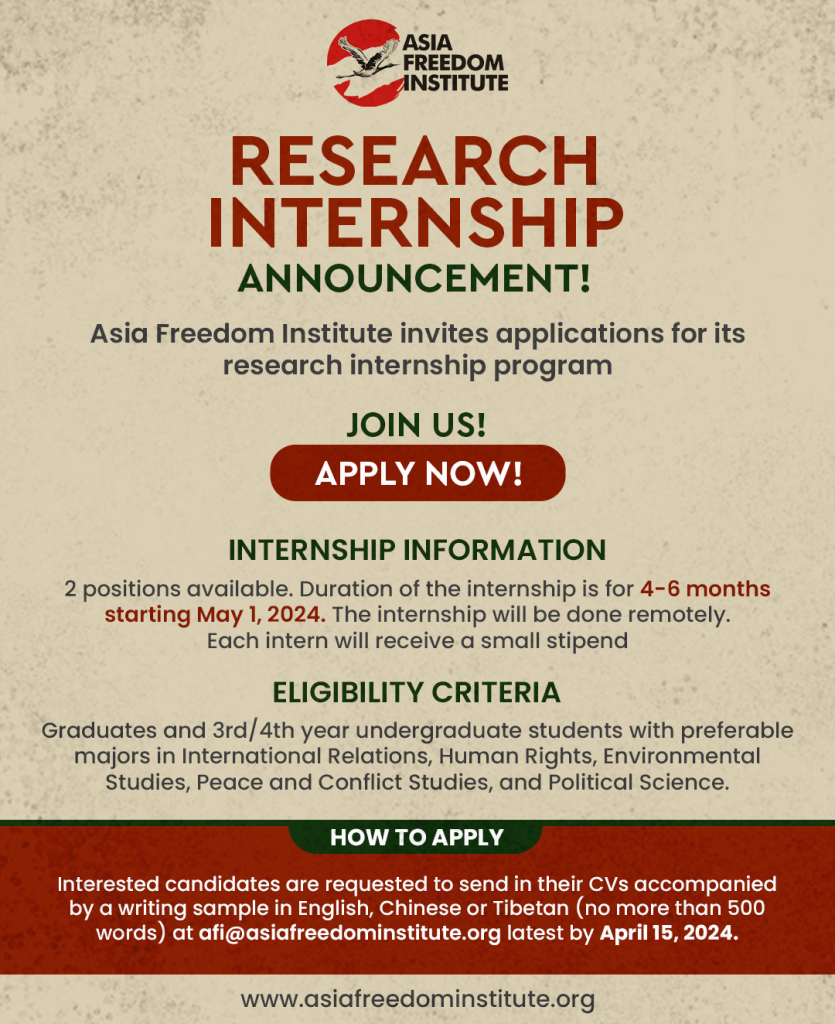The EU and China held the 39th session of joint Human Rights Dialogue in Chongqing on June 16, 2024. The meeting was preceded by a side visit to Tibet from June 13-15.
A press statement released after the meeting states that the EU team was able to have “in-depth discussions on a wide range of human and labour rights developments both in the EU and in China.”
Earlier in a June 12, 2024 joint public civil society letter to Josep Borrell, EU High Representative for Foreign Affairs and Security Policy / Vice-President of the European Commission, a group of five major civil society organizations called for the suspension of EU-China human rights dialogue. The letter stated:
“While appreciative of the open and frank discussion and engagement with the EEAS in preparation of each round of human rights dialogue with China, we regret that the EU continues this exercise despite its amply proven ineffectiveness over 38 rounds. While the EU raises concerns during these dialogues, it knows that the Chinese government will not acknowledge abuses, will not undertake any effort to secure accountability, and will not be persuaded to undertake any policy or legislative action to comply with China’s international human rights obligations. The EU’s reluctance to establish any measurable benchmark of progress, or even to establish clearly defined objectives beyond having a dialogue, exacerbates the ineffectiveness of this exercise.”
The joint public civil society letter urged the EU to consider “other, more impactful measures at the EU’s disposal to address the Chinese government’s assault on human rights at home and abroad.”
Here are some excerpts from the EU statement:
The EU also stressed that the selection of religious leaders should happen without any government interference and in respect of religious norms, including in the case of the succession of the Dalai Lama.
The EU recalled the particularly vulnerable situation of persons belonging to religious, ethnic and linguistic minorities across China, including Uyghurs and Tibetans. The EU also referred to the negative impact of Hong Kong’s new national security legislation on the rights and freedoms of the people of Hong Kong, and the erosion of the high degree of autonomy guaranteed by the Basic Law and China’s international commitments towards the Hong Kong Special Administrative Region.
The EU reiterated its further concerns about the very serious human rights situation in China, in particular in Xinjiang, in the Tibetan areas and Hong Kong. In particular, the EU referred to reports on the crackdown on human rights defenders, lawyers and journalists in China. The EU urged China to investigate and stop human rights violations, expressing concern for cases of unlawful detention, enforced disappearance, torture and ill-treatment. The EU raised several individual cases, as included in its most recent Item 4 statement delivered at the 55th Session of the Human Rights Council on 20 March, and called upon China to immediately release those who are detained in violation of due process requirements.
The statement also states that meeting participants went on a side visit to Lhasa and Nyinchi (Tibetan name Nyingtri – ཉིང་ཁྲི་ས།). The program included visits to boarding schools, municipalities, cultural and religious sites, relocated Tibetan families, as well as to a prison. Meeting requests with individual political prisoners were denied. The statement adds “following the visit, the EU put forward several recommendations to ensure full bilingual education, the preservation of the cultural heritage, identity and fundamental freedoms of the Tibetan people. The EU would encourage more visits from the international community and civil society organisations.”
In response, Chinese officials said the EU should “stop interfering in China’s internal affairs under the pretext of human rights issues.”

